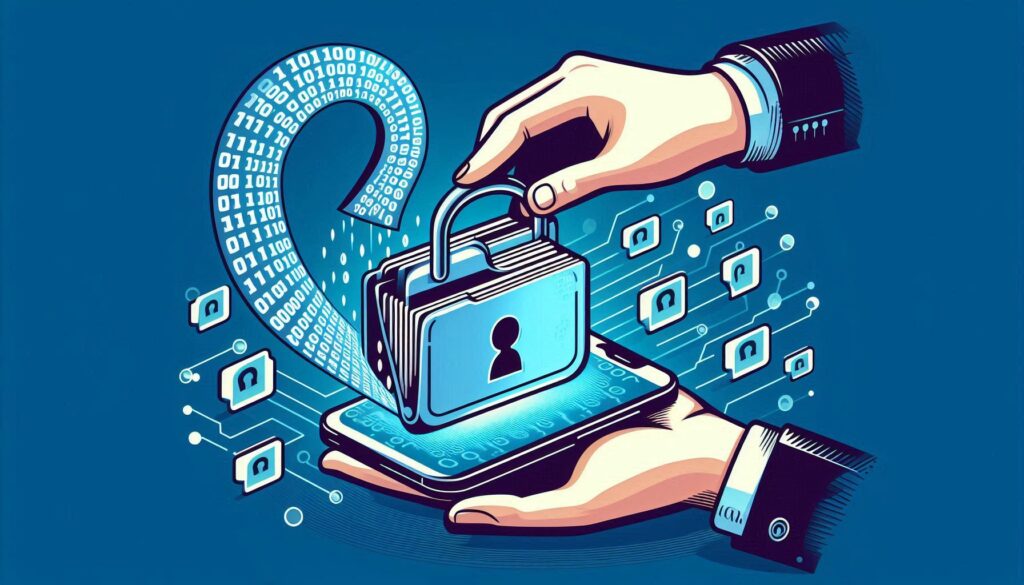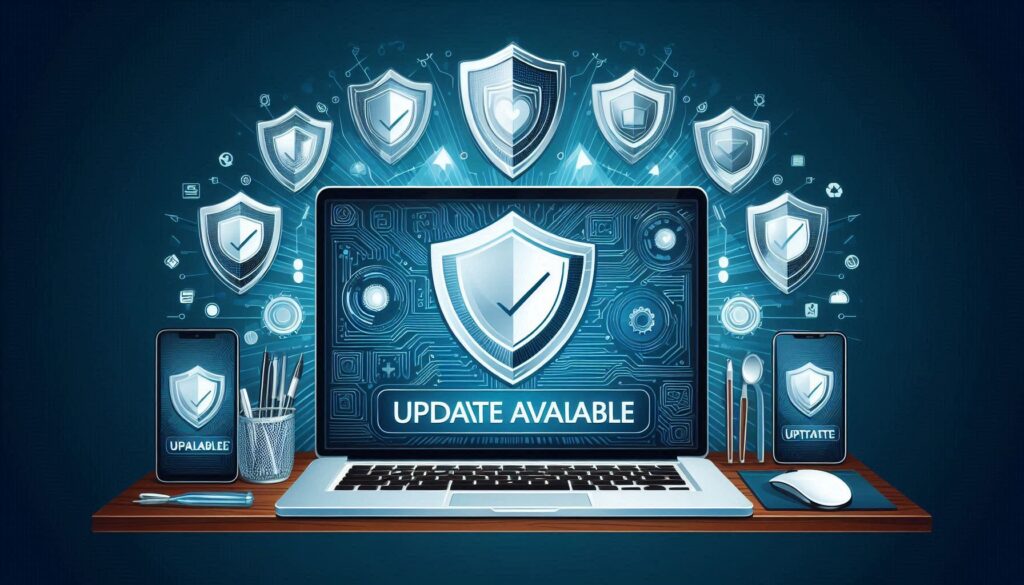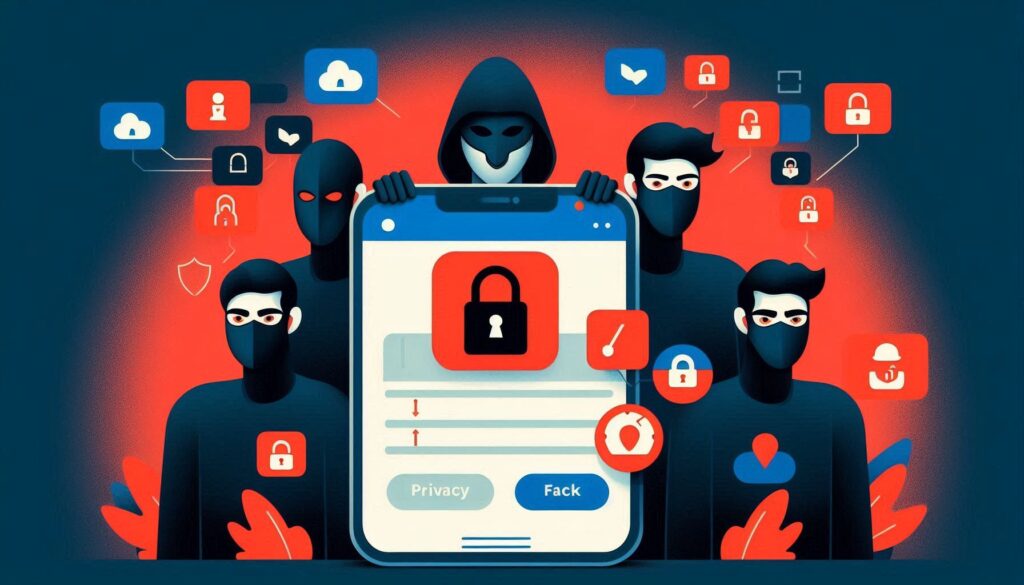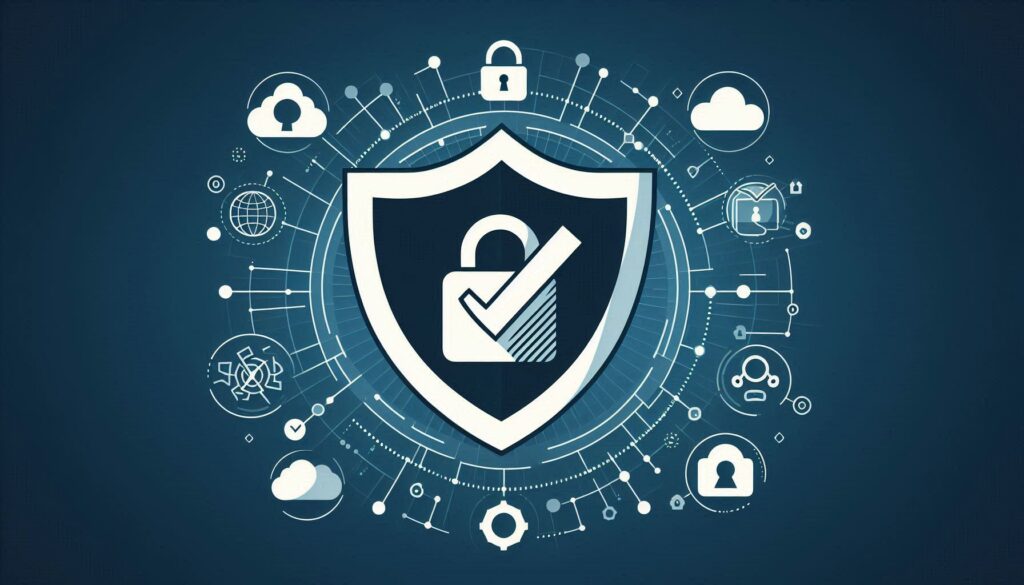Introduction:
Are you confident your personal data is safe in 2024?
In a world that is more connected than ever, data breaches, identity theft, and cyberattacks are on the rise. Every day, we hear stories about hackers exploiting personal data, from financial information to social media profiles. The risks have become even more complex, but so have the tools and strategies to defend against them. This blog will guide you through the key steps and tools to secure your personal data in 2024. Whether you’re worried about cyberattacks or just want to ensure privacy, this post will equip you with what you need to stay protected.

1. Use Strong Passwords and Two-Factor Authentication
Passwords are still the first line of defense, and weak ones are a hacker’s best friend.
- Why Strong Passwords Matter: Weak passwords are one of the most common ways hackers gain access to personal data. Using common phrases or short, easily guessed passwords puts your data at risk.
- How to Create Strong Passwords: Use a combination of upper and lowercase letters, numbers, and symbols. Avoid personal information such as birthdays or pet names.
- Two-Factor Authentication (2FA): Adds an extra layer of security by requiring not just your password but also a second form of identification (e.g., a code sent to your phone). Enabling 2FA on important accounts like banking, social media, and email will significantly reduce the risk of unauthorized access.

Example: In 2024, the average person uses around 80 online accounts. Imagine using the same weak password for all of them—your entire online identity could be compromised with one breach.
- Pros:
- Strengthens account protection
- Minimizes risks of password theft
- 2FA setup can be time-consuming
- Some websites may not support 2FA
2. Utilize Encryption Tools
Encryption is one of the most reliable ways to protect your data online.
- What is Encryption?: Encryption scrambles your data so that only authorized parties can read it. Even if someone intercepts your information, they won’t be able to use it without the encryption key.

- Best Tools for Encryption: Use messaging apps like Signal or WhatsApp, which provide end-to-end encryption for your conversations. You can also encrypt your files and backups with services like NordLocker or AxCrypt.
- Public Wi-Fi Risks: Avoid transmitting sensitive data over public Wi-Fi unless you’re using a virtual private network (VPN) to encrypt your connection.
Example: Data encrypted using Advanced Encryption Standard (AES) would take billions of years to crack with today’s computers.
Pros:
- Ensures data privacy
- Helps avoid identity theft
Cons:
- Some encryption tools can slow down performance
- Not all platforms offer encryption by default
3. Use a Reliable VPN
Virtual Private Networks (VPNs) are essential for secure browsing.
- What VPNs Do: VPNs hide your IP address and encrypt your internet connection, making it hard for anyone to track your online activity. This is particularly useful for keeping your location and personal information hidden when browsing or using apps.
- When to Use VPNs: Always use a VPN when accessing public Wi-Fi networks, conducting online banking, or when you want to mask your IP address for privacy.
- Top VPN Providers for 2024: Some popular VPNs include ExpressVPN, NordVPN, and ProtonVPN. These services offer high-speed connections and advanced encryption features.

Pros:
- Enhances online privacy
- Protects data on unsecured networks
Cons:
- Monthly fees for premium VPNs
- May slightly slow down your internet speed
4. Update Software and Devices Regularly
Outdated software is one of the easiest ways for hackers to access your data.
- Importance of Updates: Software updates often contain critical security patches that fix vulnerabilities hackers may exploit. Neglecting these updates puts your devices at risk.
- Enable Auto-Updates: Enable automatic updates for your operating systems, browsers, and applications to ensure you’re always protected by the latest security features.
- Firmware Updates: Don’t forget to update the firmware on your devices like routers, modems, and even smart home gadgets, as these can also be entry points for cyberattacks.

Example: In 2023, an unpatched vulnerability in a widely used email client resulted in the breach of millions of users’ personal data.
Pros:
- Quick and easy to implement
- Regular updates close security gaps
Cons:
- Can take up device storage
- Some updates might introduce bugs or unwanted features
5. Practice Safe Social Media Usage
Social media platforms are prime targets for personal data theft.

- Privacy Settings: Regularly review the privacy settings on your social media accounts to control who can see your posts, personal information, and location. Limiting visibility reduces the chance of your data falling into the wrong hands.
- Be Mindful of What You Share: Avoid sharing sensitive personal details like your address, phone number, or financial information on social media, even in private messages, as they can be intercepted.
- Scams and Phishing: Watch out for phishing attempts where hackers pose as legitimate companies or friends to steal your data. If something feels suspicious, avoid clicking on links or providing personal details.
Example: In 2024, social media phishing scams have increased by 30%, targeting users through direct messages and fake login screens.
Pros:
- Easy to adjust settings
- Protects your online persona
Cons:
- Social platforms constantly change privacy settings
- Requires vigilance to maintain privacy
Conclusion
Securing your personal data in 2024 is crucial, especially as cyber threats evolve. By using strong passwords, encrypting your data, browsing with a VPN, and staying vigilant on social media, you can significantly reduce the chances of becoming a victim of cybercrime. Always be proactive in updating your devices and software, and take advantage of modern tools that make protecting your data easier than ever. Protecting your personal data isn’t just a choice—it’s a necessity in today’s digital world.

Call to Action: Share this blog with friends and family to help them stay secure online, and don’t forget to comment below with your thoughts or any additional tips for data security!
FAQ
Q1: How often should I change my passwords?
A: It’s recommended to change your passwords every 3-6 months, especially for sensitive accounts like banking and email.
Q2: What is the best free VPN for basic use?
A: ProtonVPN and Windscribe offer reliable free plans with decent security features.
Q3: How can I check if my personal data has been compromised?
A: You can use tools like Have I Been Pwned to see if your email or personal information has been part of a data breach.

